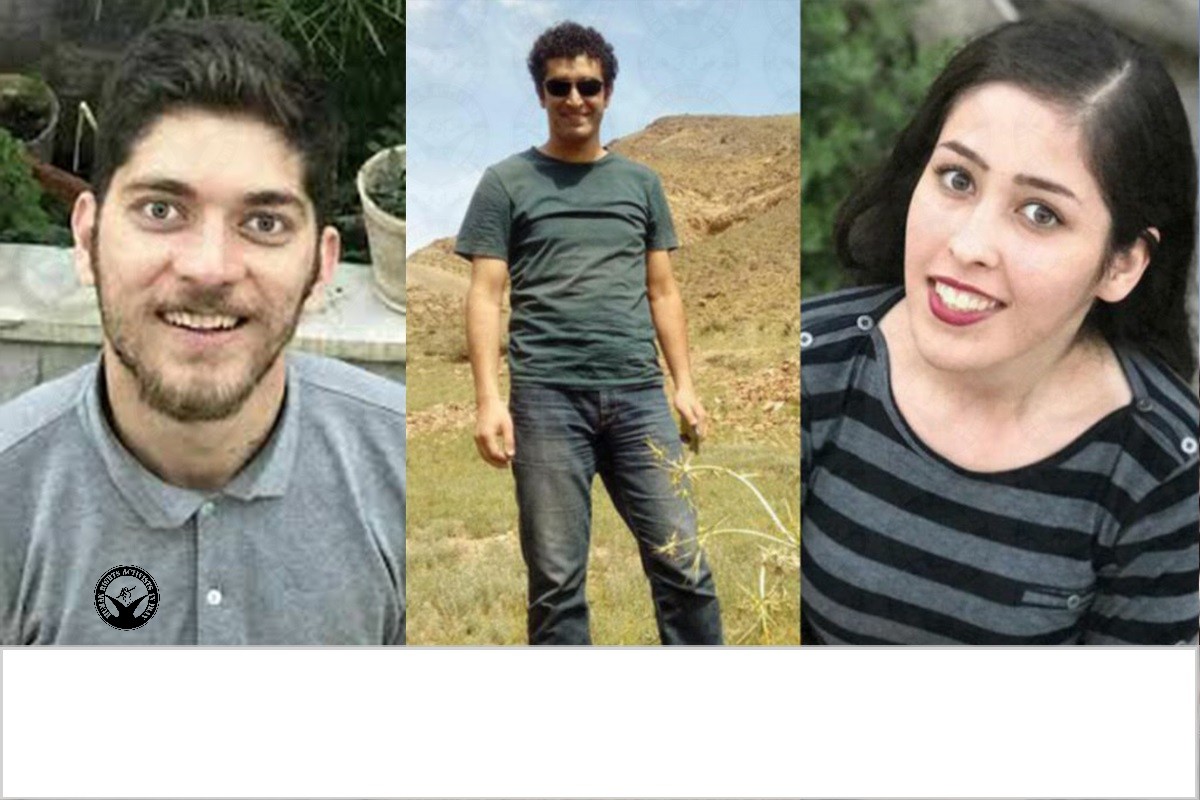The following is an
overview of human rights violations in Iran on February 4th, 2019 based on the
information compiled and verified by Human Rights Activists News Agency (HRANA).
(1) More than eight protests were organized across the country. The workers of inter-city rail in Ahvaz, the customers of the Iranian automaker companies SAIPA, Iran Khodro and Sanat Khodro Azarbaijan Group in Tehran, the investors of Caspian financial institution in the cities of Mashhad, Rasht and Tehran, Zagros Railway workers and employees in Andimeshk, taxi drivers in Dorud, and the customers of Sekeh Samen website in Tehran have held separate protests to request their demands.
(2) Mahmoud Abdollahi, a prisoner in Urmia prison, was transferred to the main prison ward after was kept for 21 days in solitary confinement on the charge of “cooperation with an opposition group”.
(3) Mohammad Hossein Sepehri, a teacher in Mashhad, who published a video to protest the arrest of teachers, workers, and union activists was summoned to the court on the charge of “insulting the Supreme Leader” and “spreading lies”.
(4) Mahmoud Behzadirad, the lawyer of Narges Mohammadi, requested medical furlough for her. The prison officials have denied her transfer to hospital for her urgent medical need although the Evin prison general prosecutor has granted this permission.
(5) The appeals court confirmed the 27-month prison term sentence given to an Azerbaijani Turkic minority rights activist, Mohammad Abdolmohammad-Zadeh, who was charged with “insulting the Supreme Leader” and “propaganda against the state”.
(6) The head of Razavi Khorasan Intelligence and Public Security Police (PAVA) reported the arrest of 40 massage therapists who have been advertising in cyberspace.
(7) The court of appeals will review Nasrin Sotoudeh’s sentence. She is a predominant human rights lawyer who has security-related charges. One of her criminal charges is putting a flower bouquet by the electricity junction box in Enghelab street.
(8) Parvin Mohammadi’s request to set a bail bond for her, was denied by the court. The detained vice-president of the Free Union of Workers in Iran was arrested on January 29 and was transferred to the Kachoui prison in Karaj to serve her one-month detention.
(9) Tayeb Roozmehr was executed in Quchan on the charge of murder and another prisoner was sentenced to death by hanging in Alborz province.
(10) A Baha’i citizen, Mohammad Reza Teyfouri, was arrested on December 16, 2018 and was transferred to the Isfahan prison to serve her one-year prison term for proliferation of a movie about Baha’is. Meanwhile, Hamed Rezvani’s whereabouts is still unknown. He was interrogated several times in the last 10 years about his contacts with Baha’is.
(11) Ayatollah Sadeq Amoli Larijani, the head of Iran’s Judiciary, claimed “there are no political prisoners in Iran”.
(12) The Supreme Court changed the former Islamic Revolutionary Guard Corps member death penalty to ten years in prison. Arsalan Khodkam was charged with “collaborating with an anti-regime party through espionage,” allegedly on behalf of a Kurdish opposition party. According to Hrana, the married, 50-year-old resident of Mahabad was formerly a member of the Kurdish Democratic Party (KDP), which eventually “surrendered to the forces of the Islamic Republic.” Later, in the 2000s, he switched allegiance by joining the IRGC, which he served for 16 years before being accused of spying on behalf of the KDP.
(13) A member of Isfahan’s city council, Mehdi Moghaddari, was sentenced to six-month in prison for tweeting in support of a detained councillor in Shiraz, Mehdi Hajati. Hajati was arrested on the charge of “supporting Baha’is”.
(14) According to a member of Islamic Parliament Research Center, Abdolreza Azizi, workers have lost 70 percent of their purchasing power.
(15) Marivan Karkuki (Najaf Abdolrahman), an Iraqi citizen, is serving seventh year of his sentence in Rajaee shahr prison in Karaj. He was sentenced to 33 years and three months imprisonment on the charge of “Moharebeh” (enmity against god).
(16) A 20-year old girl and her 2-year old niece suffer serious injuries after an acid attack in Qazvin. Meanwhile, they were denied urgent medical treatment by the hospital because their insurance, refused to cover the acid attack medical care.




